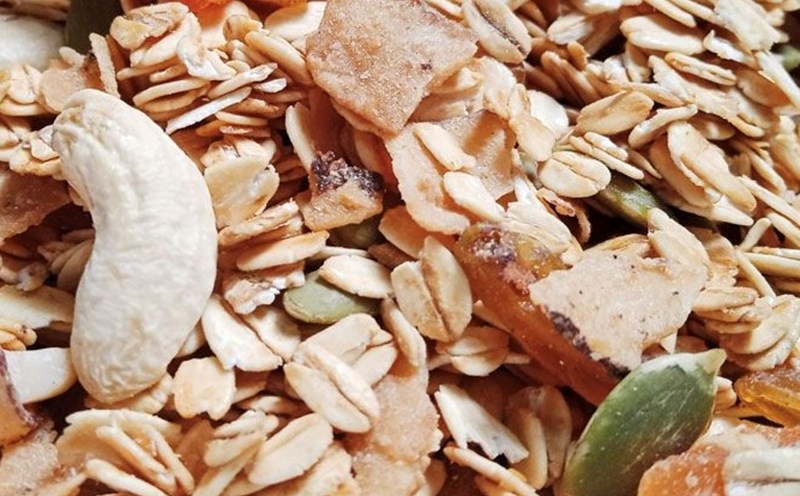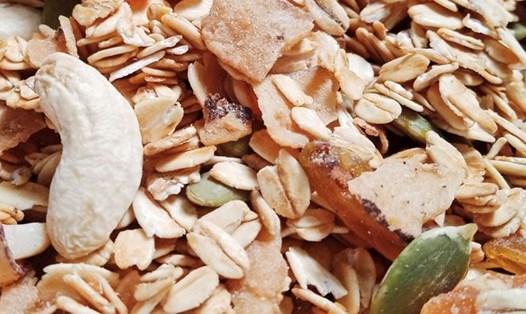Housewives need to remember that there is not just one time when it is absolutely ideal to eat oats. However, nutritionists affirm that the timing of consuming this grain should depend on personal goals such as losing weight, improving digestion, controlling cholesterol or increasing sleep.
Improve digestion
Oatmeal is a rich source of beta-glucan, insoluble fiber, and prebiotics, three important factors that support gut health. When housewives add oats to their breakfast menu, it can help maintain stable bowel movements during the day.
According to nutritionist Amy Brownstein, MS, RDN: Beta-glucan in oats helps suck water into the intestines and soften stools, while prebiotics feed beneficial bacteria, balancing the intestinal microbiome.
Reduce cholesterol
The cholesterol-lowering effects of oats have been confirmed by many scientific studies. A synthesis analysis in the American Journal of Clinical Nutrition shows that consuming 3g of beta-glucan from oats per day can help reduce LDL cholesterol (bad cholesterol) by 5 - 10%.
Dr. Aviv Joshua, a nutritionist at the American Institute of Nutrition, commented: Beta-glucan forms a gel layer in the intestines, preventing the body from re-absorbing cholesterol and supporting excretion through stool.
Support weight loss
Not only does oatmeal help you feel full longer, it also slows digestion thanks to its special fiber structure. Some studies show that eating oats in the morning can help reduce cravings throughout the day. However, not all studies have consistent results, due to the influence of factors such as overall diet and physical activity levels.
Support muscle growth and recovery after exercise
Oatmeal is not as high in protein as other meats, but when combined with milk or unsweetened soy milk, it is an ideal recovery meal after exercise. A study published in the Journal of the International Society of Sports Nutrition showed that supplementing 25g of oatmeal protein per day helps reduce muscle inflammation and speed recovery after exercise.
Control blood sugar
Beta-glucan in oats also helps slow down the absorption of carbohydrates, regulating sugar and insulin levels after meals. A 12-month study in Germany recorded HbA1c levels, an average glycemic index, significantly decreasing in people who ate 100g of oats/day.
better quality sleep
A diet rich in whole grains, including oats, is associated with better sleep quality. According to a study by Columbia University (USA), people who sleep less than 5 hours a night often consume less whole grains than the group who sleep for 7-8 hours.
Tips for effective use of oats that mothers should know
Prioritize old-fashioned steel or rattan-cut oats to retain more beta-glucan.
Limit the use of oats for immediate consumption because they often contain a lot of sugar and sodium.
Combine with protein such as eggs, milk, or soy to create a balanced meal.
Can be eaten sweetly (with honey and fruit) or salty (with eggs, vegetables).
Note: People who are allergic to oats or celiac disease should choose products labeled "gluten-free" to avoid cross-contamination in the preparation.










